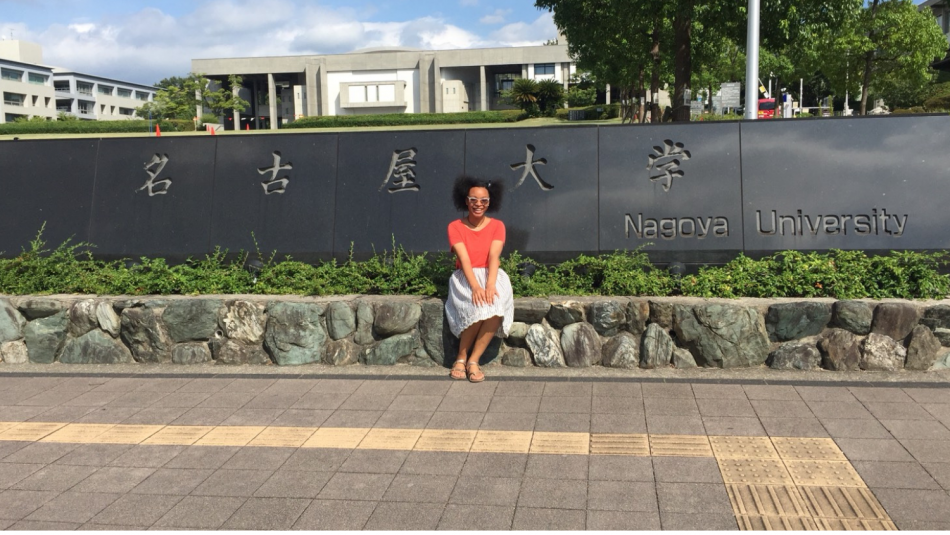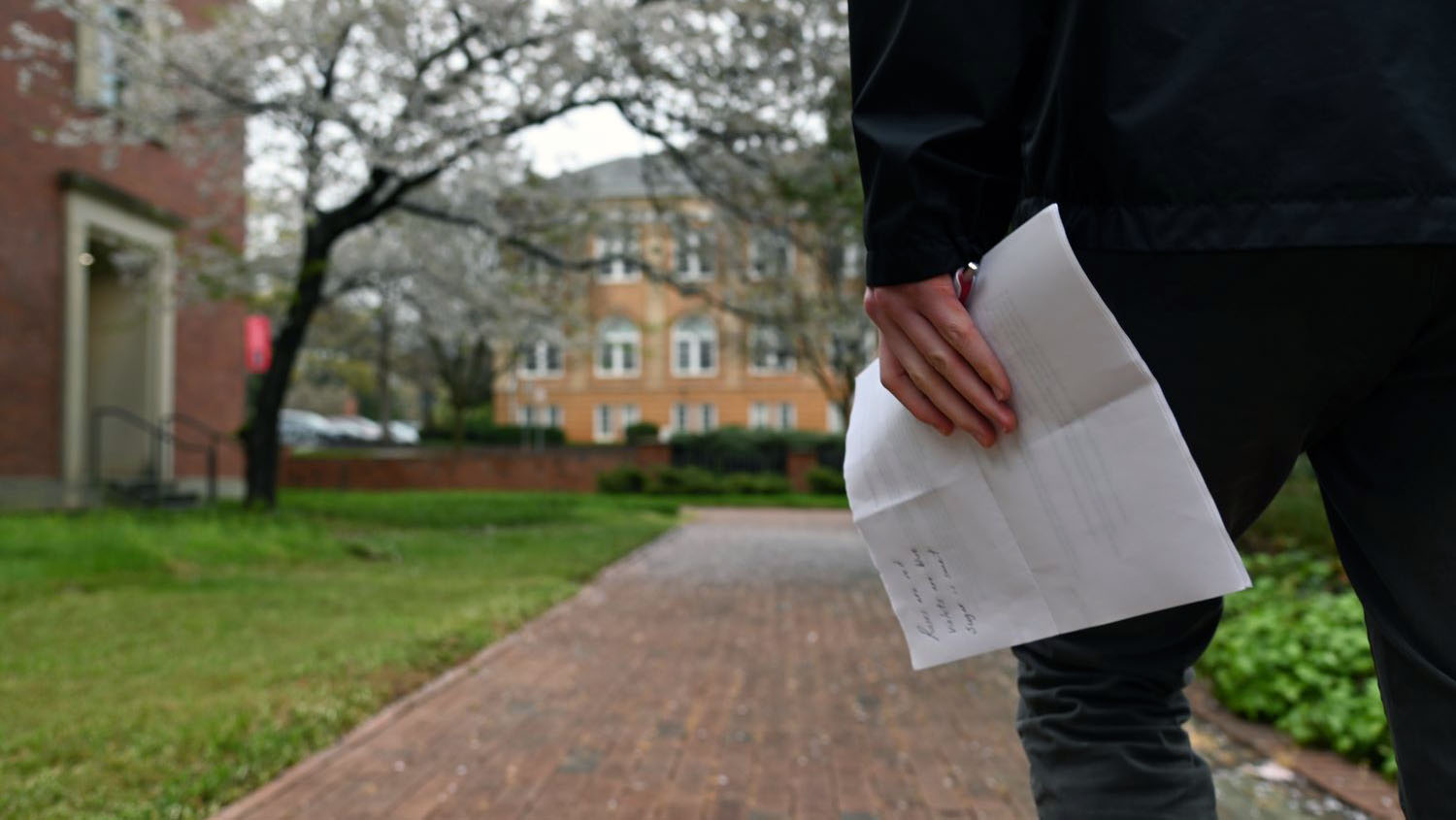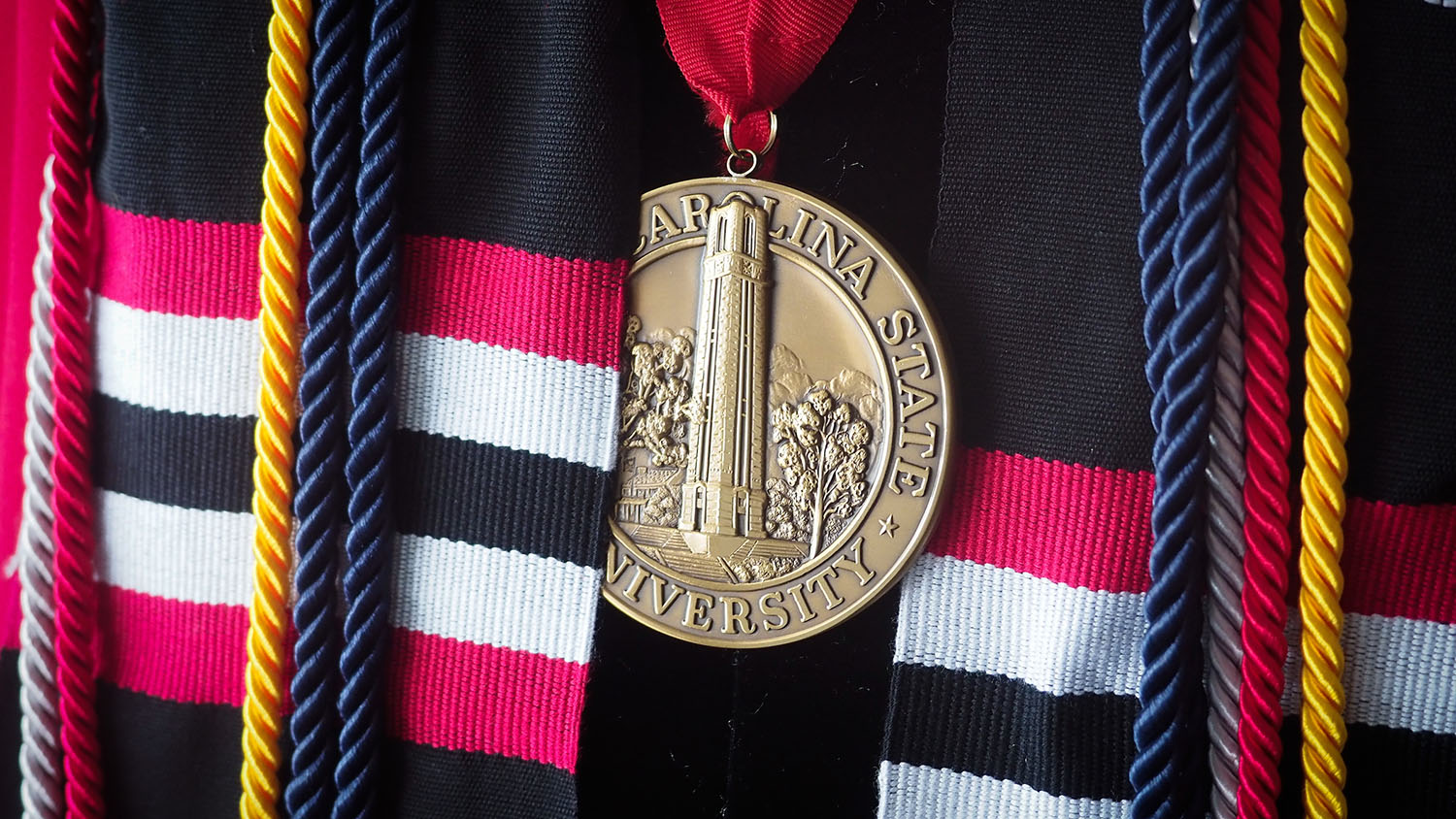Program and Location:
Spring, Nagoya University; Nagoya, Japan
Major/Minor:
Biology-IPN & Japanese
Why did you choose to study abroad?
I had been wanting to go to Japan since my freshman year of high school. Initially, my interest in Japanese culture began with anime, which my friends had introduced me to at the time. But, as I was presented with the opportunity to dual enroll at NC State, I made moves to actually start learning the language and educating myself about Japan’s culture and history. It didn’t take much to convince me that I absolutely had to visit the country at least once, to not only take in the surroundings but also to challenge myself to pick up as much of the language as I could. I hadn’t had any other traveling opportunities like this beforehand, since all of my family members live in the same few states and going overseas wasn’t feasible financially. But, I figured planning ahead to do so while I was still in college would probably be the only chance (and the cheapest), at least until I was well established with a full-time job of some sort.
What did you learn about yourself?
Finally going to Japan after waiting 7 years to do so really made it clear that Japanese culture was going to be a part of my life for the long run. I may not have been learning the language for very long (I had only studied for about three years when I arrived) and I have no heritage connections to speak of, but there was just something that ‘clicked’ when I made it to Japan. It may sound cliche, but I really found myself during my study abroad. For the first time, I took time to explore my surroundings, whether it was walking a new path on the way home, or choosing to take a walk early on a Saturday morning just to see a different part of the city. And ironically it made me appreciate my life here in the states all the more. It also confirmed my ability to be independent, and my appreciation for it. My family is only 10 minutes away from NC State’s campus, so never before had I been that far away from them for such a long time. It was surely a struggle sometimes because I had so many things to keep track of, but even when I was feeling down or stressed, I never truly felt homesick. This may change if I manage to go back to Japan for a longer period of time, but there was this level of comfort that I always had, even amidst the waves of culture shock. Even when I acknowledged the things about Japan that I didn’t like, I still felt drawn to the country, and I’ve carried that feeling even months after coming back home. Studying abroad allowed me to explore my own interests in a new environment without the same stress as being home, and really helped me figure out where I wanted to be in the future, both career-wise and personally.
What was one of your favorite parts of your program?
It only lasted for 3 days towards the end of my trip, but I was able to participate in a homestay program where I lived with a Japanese family right outside of Nagoya for a weekend. Communicating in all Japanese was tough for me, but I really had the best time! The family I stayed with was so welcoming, and we did lots of fun stuff together like having potluck dinners with other homestay families and going to the city’s annual anime convention. Whenever we were at home, we shared stores about living in our respective countries and showered each other with questions about cultural differences. They were even the last ones to see me off at the train station on my way to the airport! Even now we still keep in touch; just one of the many connections I made in Japan that I hope to cherish forever.
What advice do you have to future study abroad students?
Planning is a major key. I enjoyed every minute of my time in Japan, but there were definitely things I could’ve done so things could run smoother for me. Of course, one of the biggest obstacles for study abroad is financial planning. I would really encourage anyone interested in studying abroad, especially semester or year-long programs, to save as much as they can and really follow a budget. The ones provided by the study abroad department are great, and I wish I had followed it a little more closely (or made one of my own that I could’ve stuck to) so that I had money stashed away for traveling in Asia while I was in Japan.
How were your classes abroad different than if you would have taken them at NC State? Did you take any field trips or do anything outside of the traditional classroom?
In some ways, the classes in Japan were definitely more relaxed in terms of grading than here at NC State, which really gave me time to relax and enjoy other parts of Japan. Except for one intense literature class I took, all of my other courses were not very heavy on tests or projects–instead, there was usually a consistent amount of homework which was light itself since it consisted of assignments that we did not have time to finish in class. Especially for my Japanese language class, I think I improved a lot with the approach of having homework and presentations instead of being constantly quizzed or tested on memorized material. For my Contemporary Japanese Society course, we took a class field trip to Meiji-Mura, which is an open-air museum displaying historical buildings and architecture from the Meiji, Taisho, and Showa periods in Japan. The initial tour was very informative and interactive (there were a lot of props and exhibits in the buildings that we could interact with) and we even had time to venture out on our own over the entire park.
In what ways did your identity have an impact on your experience abroad?
As a student of color, I was initially worried about facing discrimination while I was in Japan, since there are some countries whose citizens aren’t particularly kind to minorities. Luckily, I never had any issues while I was in Japan, although there can be a general distaste for foreigners that is not specifically directed at minorities (and is not encountered on a daily basis).
Is there any advice you would give to other students who share your identity?
I would caution them to thoroughly research the city and country where they want to study abroad to make sure they would be comfortable living in those areas. It kind of sucks that we have to worry about threats to our safety as minority students, but it is important to keep in mind. However, and this may sound contradictory, I would also encourage them to keep an open mind and enjoy as much of their study abroad as they can without focusing too much on racial divides. It’s been my experience that many places outside of the U.S. are not so quick to focus on such divisions, which is not to say that they are not important, but just viewed differently based on a country’s social history and culture.
Where did you find support to navigate any challenges you faced abroad?
I mostly connected with other people of color I met at my university, or friends I had that were studying in other cities in Japan. But it was usually trivial stuff.
Would you do it again?
Absolutely without a doubt, YES. I’m actually in the process of applying for a research internship in Japan for Summer 2019 to bring both of my degree-related interests together.
This post was originally published in Study Abroad.
- Categories:



